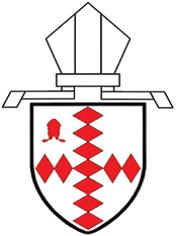Chemistry
 SUBJECT INTRODUCTION
SUBJECT INTRODUCTION
Head of Department: Amrit Aujla
The department has eight teaching staff and three technicians:
- Ms Louise Britton – Head of Chemistry
- Dr Lola Llledo - Head of Biology
- Mr Anthony Kepple - Head of Physics
- Mr Laurence Hartnett – Physics Teacher
- Mr Kelvin Gabari - Science Teacher
- Mr Laurence Handy - Science Teacher
- Mr Benjamin - Science Teacher
- Mrs Todorinovic - A Level Physics Teacher
- Mr Daniele Gasparro – Senior Science Technician
- Ms Rupal Kukadia – Science Technician
- Mr Andrew Deevey - Science Technician (part time)
‘Good teaching and learning’ - that has been the Science department’s focus in the last 10 years. We have achieved this – reflected in our consistently high attainment in Double and Separate Award Science. We are continuing to attain our goal of ‘outstanding teaching and learning’.
We are the largest department in the School as Science is a CORE subject (with effectively 3 subjects combined – Biology, Chemistry and Physics). We have a Head of Department (overall responsibility) and now have heads of Biology, Chemistry and Physics. We have six experienced teachers (5 full time, 1 part time). We all have vast experience (and success) at delivering the GCSE Curriculum with three Biologists, two Chemists and one Physics specialist.
There are 7 large laboratories, which have Fume Cupboards and the standard equipment necessary for delivering Science to a GCSE Level, as a practical subject.
THE CURRICULUM
Chemistry is about everything. It is the central science that explains how the world around us works. It enables us to see patterns in the myriads of chemical reactions that occur in nature. In this course students will see how the laws of chemistry and the skills of today’s chemists have been used to achieve our present high standards of living. AS Chemistry is an exciting course that places emphasis on the application of knowledge and the usefulness of laboratory research.
Progress will be checked via Independent Study packs and end of unit tests.
Students will study the basic laws and principles of chemistry and learn how to predict the properties and the atomic structure of elements from their positions in the periodic table. Topics will also include organic chemistry, carbon compounds including fossil fuels, plastics and recycling. Students learn how to control chemical reactions and the importance of chemistry in manufacturing processes. Students are introduced to modern analytical techniques such as mass spectroscopy and nuclear magnetic resonance.
A-Level: three written examinations each 2 hours long, at end of two years.
There are 9 lessons over the two week timetable taught by 2 Chemistry specialist teachers.
Students’ practical skills will be developed throughout the course and assessed in the written examinations.
ENRICHMENT & EXTRA-CURRICULAR
Recently the department held a successful ‘Science Week’ that involved all year groups, with our Year 12 and 13 students helping with the implementation and planning. This included a series of lessons that explored Forensic Science.
-
Science permeates through ALL aspects of our society, from the recycling bins that our department funded to the understanding of ‘reproduction’ – with social, moral and ethical issues. It would be impossible to list specific relevance as it is an ‘over-reaching’ subject
EXAM BOARD
Exam Board: AQA A level Chemistry http://www.aqa.org.uk/subjects/science/as-and-a-level/chemistry-7404-7405
Course Code: 7405
Specification: http://filestore.aqa.org.uk/resources/chemistry/specifications/AQA-7404-7405-SP-2015.PDF
Past papers:
http://www.aqa.org.uk/subjects/science/as-and-a-level/chemistry-7404-7405/assessment-resources
Text books and Revision Resources
Text books: Year 1 and Year 2 A-level Chemistry, Hodder
Reading List: Students will be given a list of books and articles
Resources: https://chemrevise.org/revision-guides/
https://www.youtube.com/user/MaChemGuy
https://www.youtube.com/user/MrERintoul
BBC Bitesize is a good source of information, however ‘the World’ is Science – you cannot miss it!
Careers
Chemistry: All manufacturing industries, pharmaceuticals, food processing, cosmetics and metal works. Chemistry is essential for medicine, dentistry, chemical engineering and a whole host of health and environmental courses.
LIFE AFTER CHRIST'S
All manufacturing industries, pharmaceuticals, food processing, cosmetics and metal works. Chemistry is essential for medicine, dentistry, chemical engineering and a whole host of health and environmental courses.


